- Home
- Peter Ackroyd
Revolution, a History of England, Volume 4 Page 2
Revolution, a History of England, Volume 4 Read online
Page 2
Of the ‘immortal seven’ who had invited William to land with his army in England and supplant James, five were Whigs and two were Tories. The Whigs, then, felt that they had the advantage over their opponents. In the first months of William’s rule they demanded vengeance for the indignities imposed upon them during the last king’s reign; they were also determined to guide William’s counsels. But the new king knew well enough that he could not rule with the support of only one party; he had to strive for parity and balance in national affairs, favouring neither Whigs nor Tories but governing with the assistance of both. He wished to construct a ‘court party’ from the two sides.
The Whigs were not interested. They were particularly incensed against those Tory parliamentarians who had expressed their allegiance to the court of James II. Certain noblemen were accused of treason for joining the Church of Rome. The mayors and aldermen of all the towns and cities who had surrendered their charters to the previous king were to be deprived of any office for seven years. It was even proposed that a retrospective penal law should be applied to the entire Tory party. William, however, expressed his desire for an amnesty, a bill of ‘general pardon and oblivion’ for any who had engaged in arbitrary or illegal acts in the previous reign; in the summer of 1689 an ‘Indemnity Bill’ was presented to the Commons but it got no further than a second reading and was left on the table of the house. It was effectively dead.
So as far as William was concerned, parliament had failed. It had achieved nothing to his purpose and, in addition, had not granted him the easy supplies of revenue that he desired. One further imposition antagonized him even more. He proposed to sail with an army to Ireland in order to subdue the Catholics, and the remaining followers of James II, who posed a serious threat to the security of England. But the Whigs did not want him to go. They feared for his health in a land of rain and fog. They disliked the idea of a large army of recruits and mercenaries, many of them from northern Europe, standing on British soil. Before they could act with any decision, however, William dissolved the parliament and called for fresh elections.
The campaign of March 1690 was fiercely fought. ‘Never’, Diana Paget wrote to her relative, Lord Paget, ‘was greater animosities and divisions than there is at this day, Whig and Tory more than ever.’ It was, according to Macaulay, a struggle for life or death. Sermons and pamphlets and street ballads raised the temperature; lists of parliamentary divisions were published for the first time, with the purpose of ‘informing’ the constituents about the competing members. The result in fact favoured the Tories with ‘the Church of England men’, as they were sometimes called, winning the majority. In this more amenable climate the king returned the compliment by issuing ‘an act of grace’, for the pardon of all offences committed by the followers of James II; it required only one courteous reading by Lords and Commons in May to pass into law. In the following month William sailed for Ireland with his army.
The case against Ireland was similar to that against France. In both countries the pretensions of the Stuart monarchy were upheld. In the spring of 1689 James II had landed at Kinsale, on the southwest coast of Ireland, with a body of French troops. The parliament at Dublin proclaimed him to be the lawful king and passed a bill of attainder against his rebellious enemies. So in June 1690, William was poised to strike back with artillery and a larger army. The English regiments, from Cheshire, Cumberland and elsewhere, were strengthened with German and Scandinavian mercenaries.
The state of Ireland was for the new English king vexatious. He had already sent an army, under the command of the duke of Schomberg, to subdue the hostile population and its leaders; the duke had remained on the defensive and did not risk open battle, on the good grounds that his troops were untrained and that the opposing troops of James II were at that stage the stronger. William himself was obliged to take command. He sailed from Chester with a further 16,000, carried over the Irish Sea in 280 transports.
When he landed at Carrickfergus on the north-eastern coast of Ireland, he joined with Schomberg’s forces and began the march south to Dublin; when he reached Drogheda, 35 miles north of the capital, he received the news that the enemy army was close by on the south side of the River Boyne. The Jacobite force, consisting largely of Irish Catholics, was the first line of defence for Dublin. William had feared that his Irish campaign might be hindered by a wet autumn and a frozen winter, but the opportunity for a decisive victory had come. ‘I am glad to see you, gentlemen,’ he is supposed to have remarked as he surveyed the Irish forces. ‘If you escape me now, the fault will be mine.’
On the day before the battle, 30 June, he was fired upon by two field guns, and the second ball grazed his shoulder. He bent forward over his horse’s neck for a moment, and the Irish gave out a great shout of exaltation. But he steadied himself. ‘There is no harm done,’ he said, ‘but the bullet came quite near enough.’ His wound was dressed and he prepared himself for the coming battle.
It was important quickly to force the passage over the Boyne. William led his left wing, consisting of the cavalry, while Schomberg was entrusted with the command of those on foot. The watchword was ‘Westminster’. Every soldier wore a small green bough in his hat while, on the Irish side, the men wore slivers of white paper. It was hard work for Schomberg’s men to cross the river but they pressed forward; they were resolute but they were repeatedly forced back by James’s cavalry. They resisted and regrouped, however, and the Jacobite forces were ordered to retreat. James himself had watched the battle from a distance, and at its inglorious close galloped off to the fishing village of Duncannon where he would set sail for the safety of France. He would never return to Ireland and his last, best, hope of regaining his throne had gone. The Irish, effectively abandoned by their king, called him ‘Seamus a’ chaca’ or James the Shit.
The battle of the Boyne effectively ended any chance of Catholic ascendancy in Ireland. The treaty of Limerick, signed in the following year, promised relatively generous terms to the Irish forces and to the Catholic population. But the Irish Protestants were not ready to concede so much to the religious enemy and, in the Dublin parliament, they set out their own conditions for the end of the Anglo-Irish war. These became known as ‘the penal laws’. Those who had fought for James II lost all their property. No Catholic landowner could pass on his estates intact to a single heir. Catholics could not hold office, bear arms, or openly practise their religion. They were also debarred from any legal or military profession. This became known as ‘the Protestant ascendancy’ but was called by the Irish Catholics the ‘long briseadh’ or the ‘long breaking’.
Yet English triumph in Ireland was not matched by success in the campaign against the French. The war had suffered a disastrous beginning when, in the summer of 1690, a combined Dutch and English fleet was defeated by the French navy off Beachy Head with the loss of eleven ships. The news created panic fear in London and elsewhere, since it seemed possible and even likely that the enemy might now mount a full invasion of English soil. The local militias were called up, and men armed with swords or pitchforks descended onto the Devonshire coast ready to fight any Frenchman. The silver sea, serving ‘as a moat defensive to a house’, was in the command of an ancient enemy. What if its fleet sailed up the Thames?
In the event there was no French invasion or, at least, not a serious one. A thousand Frenchmen landed at Teignmouth, where they proceeded to ransack and burn down the fishing village; but then they went back to their ships and sailed away. It was a signal warning, however, of their policy of spoliation. The lord admiral of the fleet, Arthur Herbert, first earl of Torrington, was arrested and taken to the Tower for failures of duty; at a later court martial he was acquitted, but he was shunned at William’s court and never taken into service again.
William sailed across the Irish Sea to Bristol in early September 1690, having asked John Churchill, earl of Marlborough, to share command of the continuing Irish campaign with two foreign generals; the king began a slow jo
urney, in part a march of triumph, to his palace at Kensington. In the following month parliament voted him more than £4 million for the army and the navy in their continuing conflict with France; the money itself was to be raised by means of a newly conceived land tax and by the doubling of customs and excise, an increase in revenues that heralded the emergence of what has become known as a financial or ‘fiscal’ state. It was a gesture born out of fear as well as gratitude; the members of parliament were still alarmed at the prospect of invasion.
The king now travelled to The Hague for a congress in which he would try to organize the military strategies of his allies. With the exception of the Dutch, naturally, they proved to be fractious and unwilling. Denmark and Sweden, for example, considered themselves to be so distant from the scene of conflict that they held back; William suspected them of conniving at a peace with France which would be tantamount to surrender. The elector of Brandenburg would not go to the aid of the Spanish Netherlands. The elector of Saxony recalled his troops from what he considered to be unsatisfactory winter quarters. The Holy Roman Emperor, Leopold I, was more concerned with Turkey than with France. Yet William’s great strength lay in the arts of diplomacy; by means of bribes, promises and entreaties he managed to preserve the coalition.
These resources were never more necessary than in April 1691, when the city of Mons in the southern Netherlands, close to the border with France, fell to Louis XIV. The rejoicing at William’s discomfiture was not confined to Versailles; the Jacobites in London celebrated his defeat in the taverns and coffee-houses which they openly frequented. He had also another, and more secret, enemy. The first earl of Marlborough was not happy with his position; he had scored a notable victory in Ireland, with a campaign of five weeks in which he had taken Cork and Kinsale, thus blocking the seaways to France. Yet he resented the fact that foreign generals were preferred by the king, and that the dukes and counts of the various principalities of Europe could claim precedence over him.
Marlborough had all the makings of a modern patriot; he was handsome, clever and resourceful, an excellent general, and a politician of persuasive manner. He had distinguished himself twenty years before in the service of the duke of York, and had never since been out of favour. He had deserted his first patron, who had become James II, and had gone over to William’s party at the time of the invasion, doing so on the grounds of Protestant piety. But he seemed quite happy to reverse his allegiance once again, if the circumstances were propitious. He was inclined to support whatever and whoever indulged his interests, whether for power, money, or further honours, while all the time remaining tactful, modest and obliging.
Soon after his return from Ireland he seems to have organized or joined a plot to restore James II to the throne. He believed that he had the English army behind him. The evidence also suggests that other English grandees had made their own approaches to James, living as an exile in the Château de Saint-Germain-en-Laye, in the hope of insuring themselves for any possible future. Marlborough’s plot was discovered, however, and at the beginning of 1692 he was stripped of his offices and dismissed from the court. Then, in May, he was arrested for high treason and dispatched to the Tower. It was alleged, falsely, that he had been part of a conspiracy to assassinate William. The affair became known as ‘the flower pot plot’; a forged document, implicating Marlborough, had been placed under a flower pot in the house of the bishop of Rochester.
He was released from confinement after six weeks and, in a state of partial rehabilitation, eventually returned to the court. William seems to have taken a relatively forgiving view of those grandees who still dabbled in the intrigues of the Stuart dynasty. He had a low opinion of human nature.
The king’s principal concern was with the course of the continental war which in this period manifested neither great victories nor stunning defeats. But in May 1692, a French invasion fleet of forty-four ships was sighted off the coast of north-western France in the vicinity of Barfleur and La Hougue; its purpose was to restore James II to the throne of England. After a fierce encounter the French force scattered but the English and Dutch navies, in the course of their pursuit, managed to destroy fifteen enemy vessels. The threat of French attack was lifted.
The Dutch and English were now the masters of the sea while the French were obliged to concentrate upon the strategies of a land war. In the summer of the year, for example, the French army won a victory at Steenkerque in the southern Netherlands, when in the course of vicious fighting five English regiments were wholly destroyed. It is easy enough to list these events in simple chronology but it would need a pen of fire to draw a true portrait of the carnage. In ‘A Voyage to the Country of the Houyhnhnms’ (1723), the fourth part of Gulliver’s Travels, Jonathan Swift notes laconically the state of contemporary warfare with ‘twenty thousand killed on each side; dying groans, limbs flying in the air: smoke, noise, confusion, trampling to death under horses’ feet: flight, pursuit, victory; fields strewed with carcasses left for food to dogs, and wolves, and birds of prey; plundering, stripping, ravishing, burning and destroying’. Another sea of red then covered the field. At a much later date Macaulay reports in his History of England (1848) that, after the battle of Steenkerque, ‘the next summer the soil, fertilised by twenty thousand corpses, broke forth into millions of poppies’.
The war was no longer popular, if indeed it had ever been. It was simply ‘William’s war’ and on the king’s return, after his spring and summer campaigns on the continent, he found unrest and opposition. He had turned variously to the Whigs and to the Tories in the effort to establish a ‘court party’ wholly committed to the prosecution of the conflict; yet he began to favour the Whigs in the evident belief that the Tories were not necessarily reliable. He was right. The Tories made up a large portion of the ‘country party’ that turned its face against court and administration. It was distrustful of government, ever suspicious of a standing army and of those members of parliament who were dependent upon court favours.
Recognizable parties in a modern sense, however, did not exist. The permutations of individual members were endless. The Tories were in principle wholly in favour of the royal prerogative, now enjoyed by William III, but among them were many Jacobites who waited for the return of James II; the Whigs were supportive of William, but in theory they were always willing and eager to limit royal power. Where did the balance lie? The king preferred ‘mixed’ ministries, composed of various political elements, but in practice he was slowly drawn towards the Whigs because of their willingness to maintain the war against France; they were much more firmly opposed to the Catholicism and to the arbitrary despotism, as they saw it, of Louis XIV. Their contacts with the financiers of the City also gave them the ability to raise funds for the prosecution of the conflict, with the attendant promise of profit and interest repayments. They were William’s friends. They were led by a group of five peers who by 1695 were being called ‘the Junto’, after the Spanish word, junta, for council.
The exiled king, ensconced in his court at Saint-Germain, was still busily scheming for his restoration; he watched eagerly for any mis-step by William, and acquired supporters or spies wherever he could. The secret Jacobites of England had adopted a key sentence: ‘Box it about: it will come to my father.’ By which was meant that it was necessary to throw the country into confusion so that James might return. The partisans also adopted a limp when they entered their taverns. ‘Limp’ was made up from the initials of four names – Louis, James, Mary of Modena, and the young Prince. James, in the spring of 1693, issued a ‘declaration’ offering a free pardon to those who would not oppose his return and promising that he would abide by parliamentary government.
The position of James’s younger daughter, Anne, was a very difficult one; her problems were compounded after the death of her sister, Mary II, in 1694, when she became the only direct Stuart heir who was a staunch Protestant. It was noted that she had a better claim to the throne than her brother-in-law, William, who now m
ade attempts to be conciliatory. In previous years William and Mary had ignored or rebuffed Anne, for a while excluding her from court altogether. In turn Anne, encouraged by Marlborough’s wife, the formidable Sarah, had ridiculed the king; in their correspondence they called him ‘Mr Caliban’ or the ‘Dutch abortion’.
Anne was suspected of Jacobite principles on the reasonable ground that she still supported the claims of her father. It was said that, on the death of her brother-in-law, she would invite James to return to his kingdom. This was not very likely; she was wholly averse to Roman Catholicism, and remembered how much damage James had wreaked upon the body politic by his insistence on Catholic emancipation. It is more probable that she herself wished to ascend the throne in order to maintain the order and stability of the Anglican cause, to which she was utterly devoted.
William had more immediate matters to consider. By the sixth year of the war he was again in urgent need of new funds, and he turned once more to the Whigs for assistance. One of the younger members of ‘the Junto’, Charles Montagu, had the requisite skills. It was he who, more than any other, changed the nature of English finance.
2
A bull or a bear?
How would it be possible to fund the hugely expensive continental war against Louis without impoverishing the country? A solution could be found. Charles Montagu, one of the lords of the treasury, still only in his early thirties, came upon a proposal advanced three years before but never implemented. It was for the establishment of a central bank, the Bank of England, that would lend money to the government on the condition that the repayment of the annual interest would be guaranteed by parliament from funds supplied by new duties on beer and other alcoholic drinks. The subscribers to the bank would thereby have the guarantee of repayment, even if this meant that the government would raise money by making further demands upon the people. This, in essence, was the beginning of what became known as ‘the national debt’.

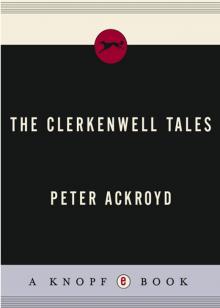 The Clerkenwell Tales
The Clerkenwell Tales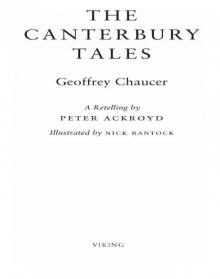 The Canterbury Tales
The Canterbury Tales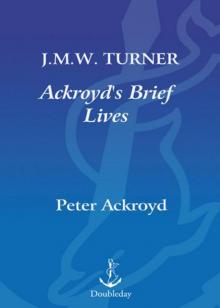 J. M. W. Turner
J. M. W. Turner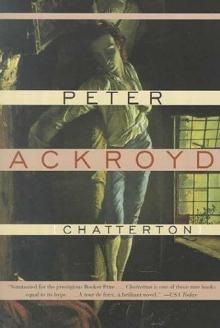 Chatterton
Chatterton The Canterbury Tales – A Retelling
The Canterbury Tales – A Retelling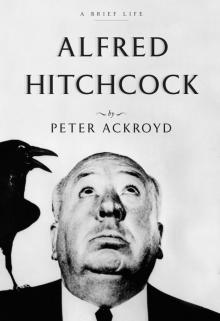 Alfred Hitchcock
Alfred Hitchcock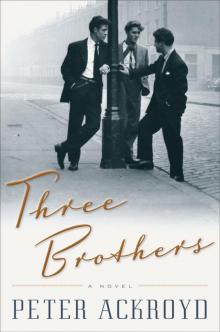 Three Brothers
Three Brothers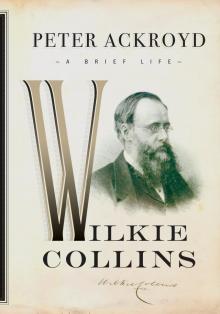 Wilkie Collins
Wilkie Collins Venice
Venice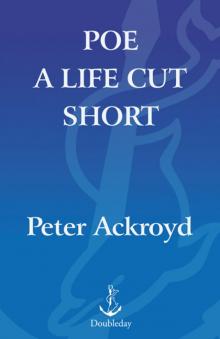 Poe
Poe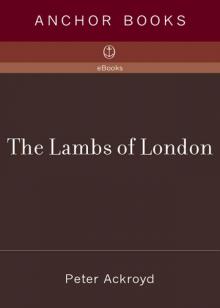 The Lambs of London
The Lambs of London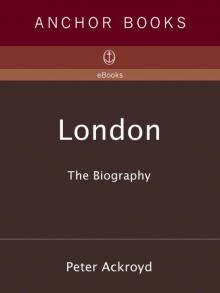 London
London Queer City
Queer City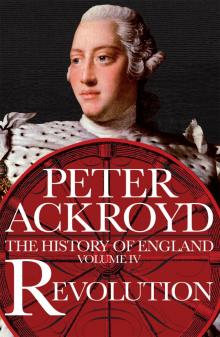 Revolution, a History of England, Volume 4
Revolution, a History of England, Volume 4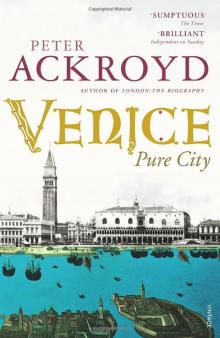 Venice: Pure City
Venice: Pure City Foundation
Foundation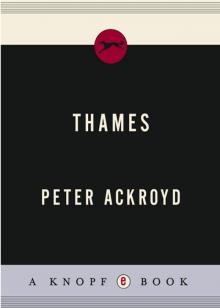 Thames
Thames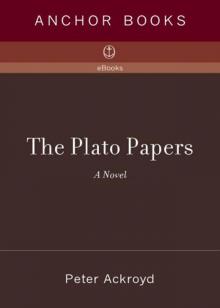 The Plato Papers
The Plato Papers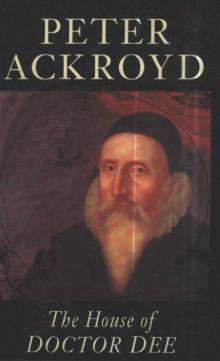 The house of Doctor Dee
The house of Doctor Dee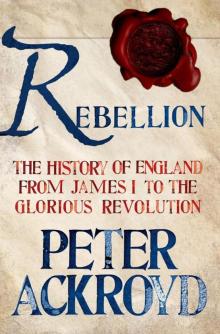 Rebellion: The History of England from James I to the Glorious Revolution
Rebellion: The History of England from James I to the Glorious Revolution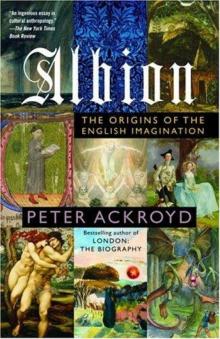 Albion: The Origins of the English Imagination
Albion: The Origins of the English Imagination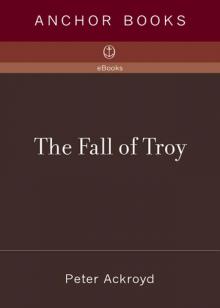 The Fall of Troy
The Fall of Troy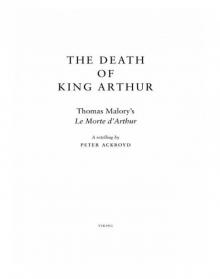 The Death of King Arthur
The Death of King Arthur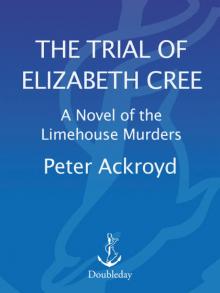 The Trial of Elizabeth Cree
The Trial of Elizabeth Cree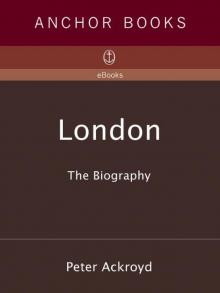 London: The Biography
London: The Biography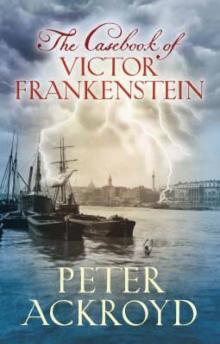 The Casebook of Victor Frankenstein
The Casebook of Victor Frankenstein Hawksmoor
Hawksmoor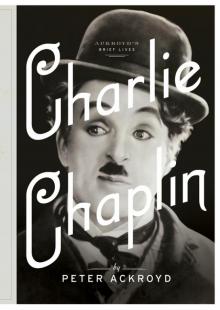 Charlie Chaplin
Charlie Chaplin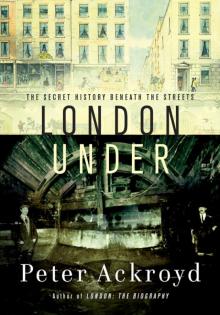 London Under
London Under